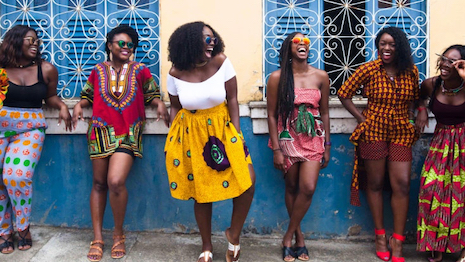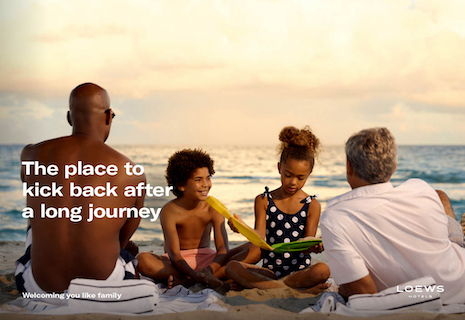- About
- Subscribe Now
- New York,
September 2, 2020

 Affluent Blacks are more likely to opt for group travel than affluent white consumers. Image credit: Travel Noire
Affluent Blacks are more likely to opt for group travel than affluent white consumers. Image credit: Travel Noire
Luxury hospitality groups looking to appeal to weary travelers as the pandemic eases should consider how to best reach affluent African-Americans, who spent more than $24 billion on travel alone last year.
According to the 2020 Ipsos Affluent Survey USA, affluent African-Americans are more likely to prefer insulated travel experiences. Shared historical and cultural experiences have shaped what it is like to “travel while Black,” influencing the preferences of even affluent Black Americans.
Ipsos defines affluents as those making the top 20 percent in household income, which translates to a household income of $125,000 or more in the United States.
Traveling while Black
For the majority of the 20th century, Jim Crow laws impacted African-Americans’ everyday activities, including where and how they traveled.
Institutionalized segregation and racism determined where Black Americans could eat and sleep safely. For instance, those who could would travel by car to avoid widespread discrimination on public transportation.
Even Blacks who were able to acquire wealth found themselves isolated, as social clubs had traditionally low participation of non-white members.
 Travel brands need to be aware about representing more diverse guests in their advertising. Image credit: Loews Hotels & Co.
Travel brands need to be aware about representing more diverse guests in their advertising. Image credit: Loews Hotels & Co.
This continues to have implications in contemporary culture, as affluent Blacks in particular opt for group travel and luxury accommodations to help ensure more positive travel experiences through more controlled environments.
Blacks are more likely to prefer organized group travel than white consumers. Among luxury travelers, Blacks are also more likely than white travelers to stay at five-star accommodations or fly first class.
Investing in upscale accommodations does not always protect affluent Blacks from instances of implicit bias and microaggressions, however. Examples cited by Ipsos include hotel staff ignoring guests’ questions or gate agents reminding fliers that they are standing in the line for first class.
These situations are not necessarily limited to the U.S., as Black travelers, particularly women, are often more concerned about safety when traveling internationally to more conservative cultures.
Whether traveling domestically or abroad, Black affluents also rely on word of mouth to make travel decisions.
Published from 1936 through 1966, “The Green Book” was the predecessor of today’s social media and online travel groups. The guidebook catalogued hotels, restaurants and other public accommodations which were “friendly” to Blacks.
Now, consumers can turn to influencers, online groups such as Black Adventuristas and Travel Noire and other resources to learn about other Blacks’ travel experiences.
Ipsos recommends that luxury brands partner with Black influencers and bloggers
Social media has become a key source of inspiration for consumers as they make travel plans, but research finds that friends’ posts are more influential than what a brand or publication shares.
According to a survey from Allianz Global Assistance, about half of millennials say social media influences their travel decisions. Peer-to-peer word of mouth holds the most sway, as 86 percent of consumers trust their own social networks to post accurate content about travel experiences, while 55 percent deem brands to be truthful on social media (see story).
Reaching Black travelers
With the coronavirus pandemic leading to a prolonged slowdown in travel, luxury hospitality and travel groups have an opportunity to evaluate and adapt their strategies for reaching Black affluents.
Educating staff, including marketers, to be aware and act against unconscious bias is essential.
Ipsos suggests luxury travel brands go beyond representing Blacks in advertising and marketing to actively engage with Black influencers and bloggers.
The majority of consumers expect brands to commit to inclusivity and diversity in their advertising, according to recent research from Getty Images. Nearly 80 percent of respondents believe advertisers can improve at reflecting people’s true lifestyles and cultures, beyond just including people of various ethnicities, backgrounds and appearances (see story).
Media plans should also include spending on African-American publications and platforms. Highlighting activities for group travelers will help these media placements resonate with Black audiences.
Share your thoughts. Click here